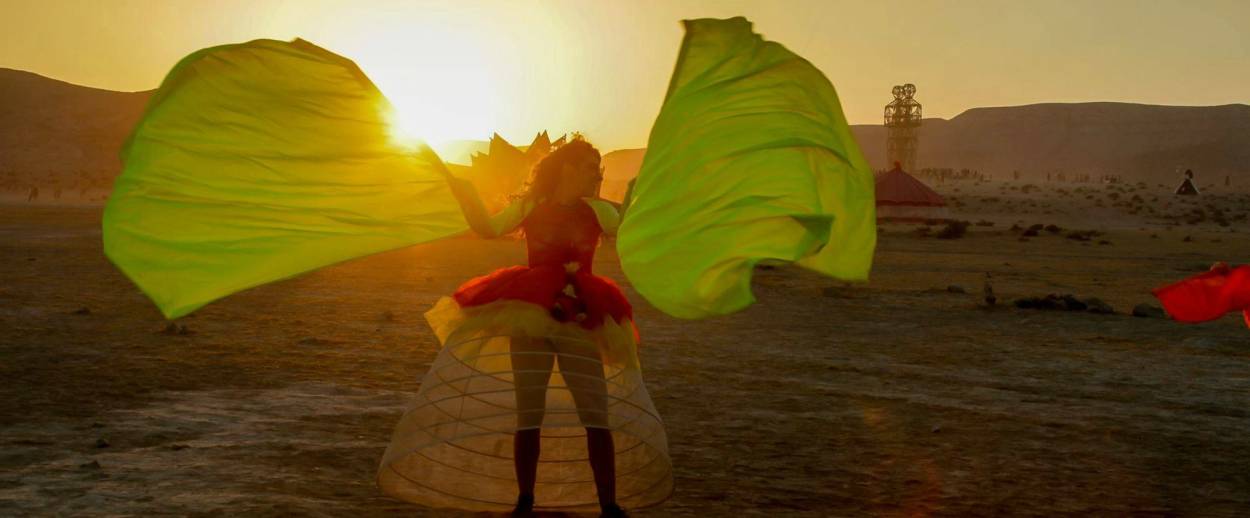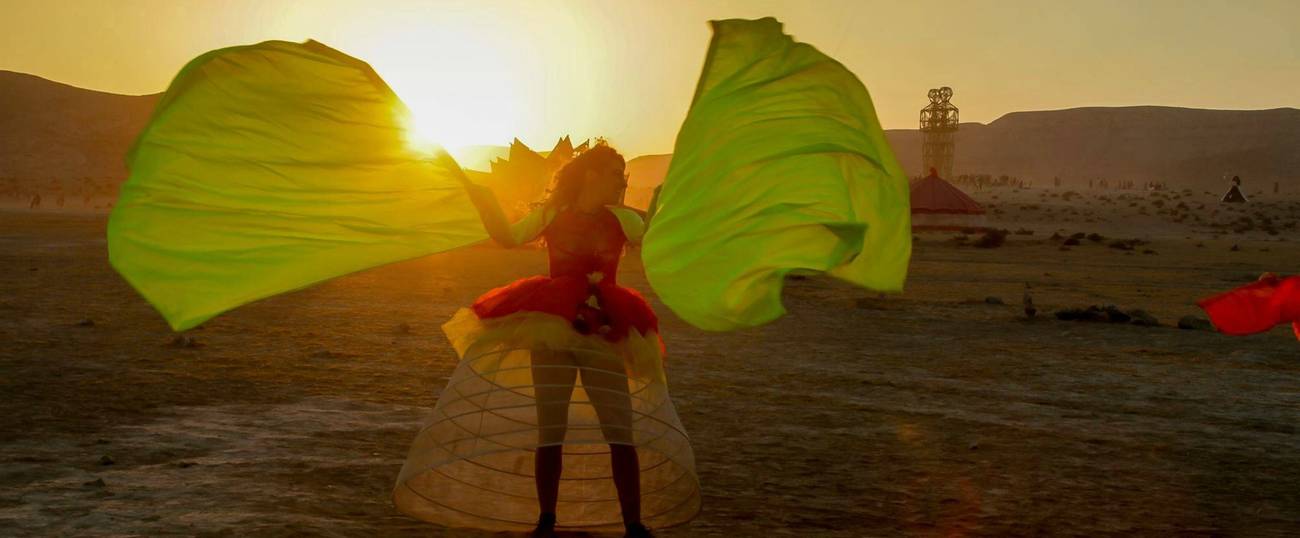Midburn, Israel’s Burning Man, Marks Biggest Year Ever
Nearly 12,000 people will partake in the rave, the world’s second largest outside of the United States




If you know someone in tech, or someone who has a lot of money, or someone who loves bad art, you probably know all about Burning Man, which—as far as I could gather by pretending to listen some years ago to a tech-minded and moneyed bad art lover—is a festival that takes place every year in the Nevada desert and that encourages its 70,000 participants to erect pointless structures, dance around them naked for a few days while swallowing copious amounts of drugs, and then burn down their encampment and spend the rest of the year going on and on and on about how much they love Burning Man.
Sand, tech, too much familiarity: As soon as Israelis learned about the festival, they realized they just had to have a version of their own. And so was born the Midburn, a portmanteau of midbar, Hebrew for desert, and burn, American for “I have no idea what to do with all my spare time and money so I guess I should literally burn both.” Convened for the first time in 2014 not far from Sdeh Boker, the small kibbutz in the Negev famous for being the home of David Ben-Gurion, the festival soon grew in size and stature. This week, it convened for the fourth time, attracting nearly 12,000 people, a record number, making Midburn the world’s third-largest Burning Man-type festival.
And while you can still expect to find an abundance of pointless art projects and sun-stricken people talking about self-actualization, Midburn, being an Israeli project through and through, is run like a military operation, with an officer in charge, plenty of deputies, and different organizational divisions, each with its own IDF-style acronym. Oh, and instead of a burning man, Midburn offers a flying camel, the emblem of Tel Aviv’s old trade fair.
But even as many participants are reveling in the Negev, many more, according to Israeli media, decided to skip this year’s event, in part because of inclement weather and in part because, well, the festival may have gotten too cool for its own good. “It’s a small country, ” Udi Volkov, one of those who sold their Midburn tickets and will not be attending this year, said in an interview with Time Out, “and every time something alternative hits the mainstream, it gets coopted and turns into something very different.” Meanwhile, residents of nearby communities are also taking aim at the festival, complaining that the revelers make too much noise and that all the burning creates too much smog and demanding that the festival be moved to a different location next year. The desert, it turns out, isn’t nearly big enough for everyone to share.
Liel Leibovitz is editor-at-large for Tablet Magazine and a host of its weekly culture podcast Unorthodox and daily Talmud podcast Take One. He is the editor of Zionism: The Tablet Guide.